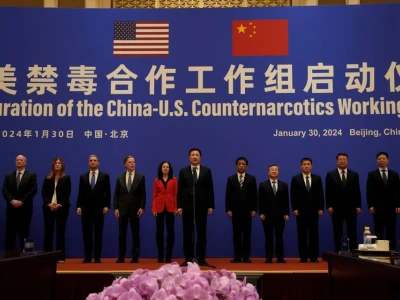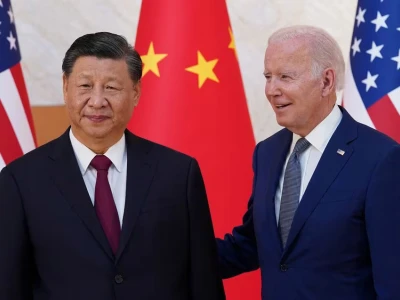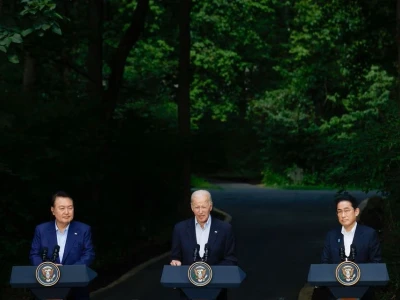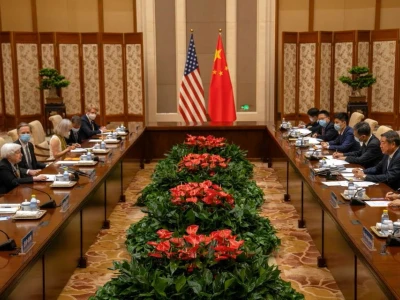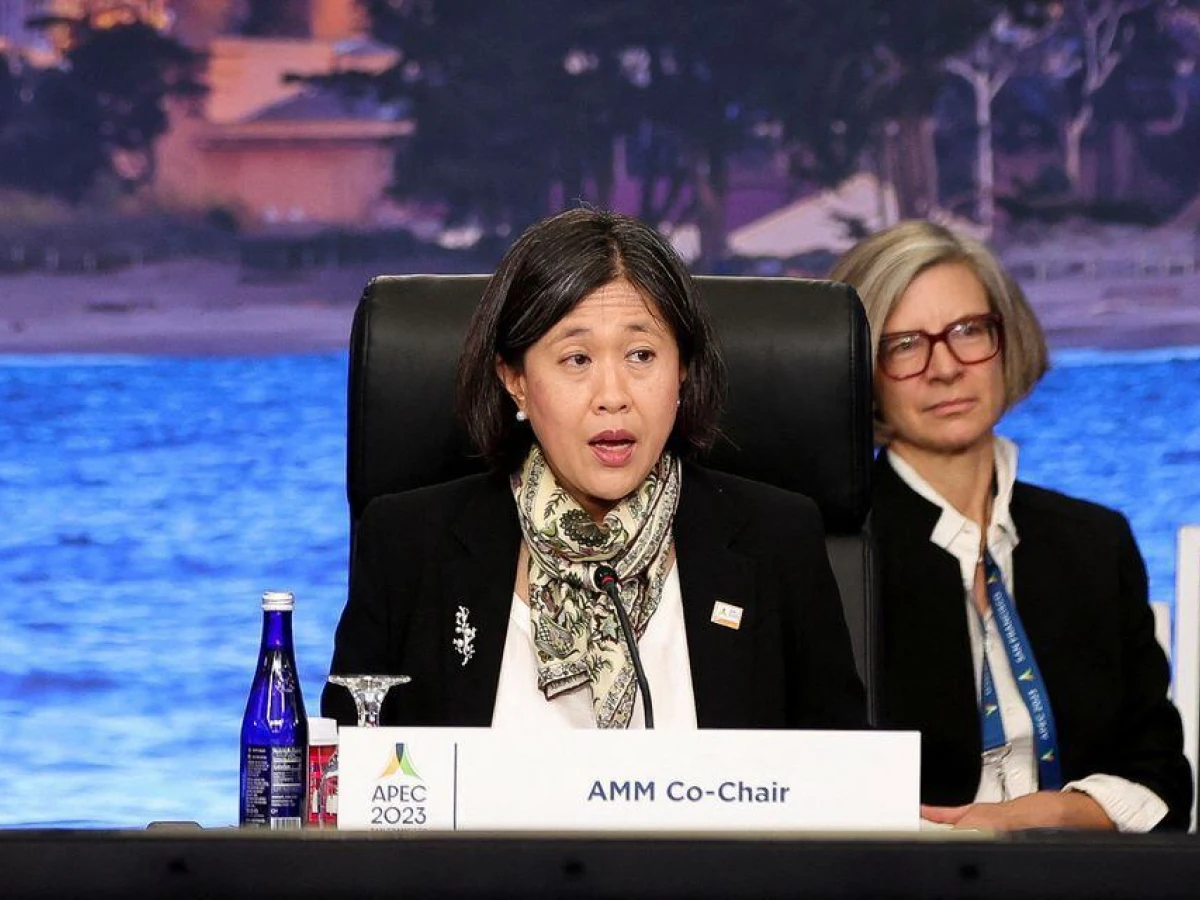
China objects to US proposal for APEC trade and investment policies
News of China's objections at the APEC summit come as U.S. President Joe Biden and Chinese President Xi Jinping met.
SAN FRANCISCO, Nov 15 (Reuters) - China is objecting to a U.S. proposal for Asia Pacific Economic Cooperation members to incorporate sustainability and inclusivity into their trade and investment policies, a source briefed on the negotiations said on Wednesday.
Talks on the issue were continuing at the APEC summit in San Francisco to try to find language that the group's 21 member states could agree on, the source said.
U.S. Trade Representative Katherine Tai told a trade-focused plenary meeting she hoped the proposal, dubbed by the Biden administration as the "San Francisco Principles for Integrating Inclusivity and Sustainability into Trade and Investment Policy" could be still be finalized.
Tai said the U.S.-led effort was "supported by all economies but one and, as such, it is unclear if APEC will fulfill that mandate. Nonetheless, I remain optimistic that economies will finalize the San Francisco Principles soon."
Few details of the U.S. proposal were available, but the Biden administration is promoting the idea that APEC economies increase opportunities for more people, particularly disadvantaged populations, and to incorporate clean energy and carbon emissions reductions goals into their development, growth and trade policies.
Tai is separately seeking to negotiate a green steel arrangement with the European Union that aims to disadvantage Chinese steelmakers on the basis of their higher carbon emissions.
News of China's objections at the APEC summit come as U.S. President Joe Biden and Chinese President Xi Jinping met south of San Francisco for high-stakes talks that may ease friction between the superpowers over military conflicts, drug trafficking and artificial intelligence.
